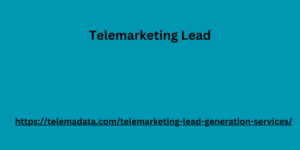Lead generation is the lifeblood of many businesses. It’s the process of attracting and capturing potential customer interest, building a contact list, and nurturing those leads into sales. But with great power comes great responsibility, and the world of lead generation is no exception. A complex web of regulations exists to ensure consumer privacy and protect them from unwanted marketing tactics.
Here’s a breakdown of some key lead generation regulations
The Telephone Consumer Protection Act (TCPA): This law governs telemarketing calls and text messages. The FCC’s recent update requires “express written consent” from consumers before bombarding them with robocalls or robotexts. This means a consumer can only grant permission for a single seller to contact them, not a group of companies a lead generator might partner with. Disclosures about who will be contacting the consumer must also be clear and prominent.
The CAN-SPAM Act: This federal law regulates email marketing. Businesses must obtain a valid email address and clear and conspicuous permission to send emails. The unsubscribe process must also be straightforward, allowing users to easily opt-out of future messages.
The Federal Trade Commission (FTC) Acts:
The FTC enforces various regulations to prevent deceptive and unfair business practices. This includes ensuring the truthfulness of any claims made in lead generation campaigns, whether in advertisements, testimonials, or product descriptions.
Privacy Laws: Data privacy laws are constantly evolving, with some variations depending on location. The General Data Protection Regulation (GDPR) in Europe and the California Consumer Privacy Act (CCPA) in the US are prominent examples. These regulations require businesses to be transparent about how they collect, store, and use consumer data. Consumers have the right to access and delete their personal information, adding another layer of responsibility for lead generators.
Staying Compliant:
So, how can businesses navigate this regulatory landscape? Here are some tips:
Invest in Compliance Telemarketing Lead Training: Educate your marketing and sales teams on the relevant regulations.
Clear and Transparent Disclosures: Be upfront about how you collect and use data, and obtain clear consent from consumers before contacting them.
Robust Opt-Out Mechanisms:
Make it easy for consumers to unsubscribe from your communications.
Data Security Choosing The Right Firebase Champion Measures: Implement strong data security practices to protect consumer information.
Seek Legal Counsel: For complex situations, consult with a lawyer specializing in marketing and data privacy laws.
By understanding and adhering to these regulations,
businesses can ensure their lead generation practices are ethical and compliant. This not only protects consumers but also fosters trust and strengthens brand reputation. Remember, a focus on transparency and building genuine relationships with potential customers is key to sustainable success in the ever-evolving world of lead generation.



